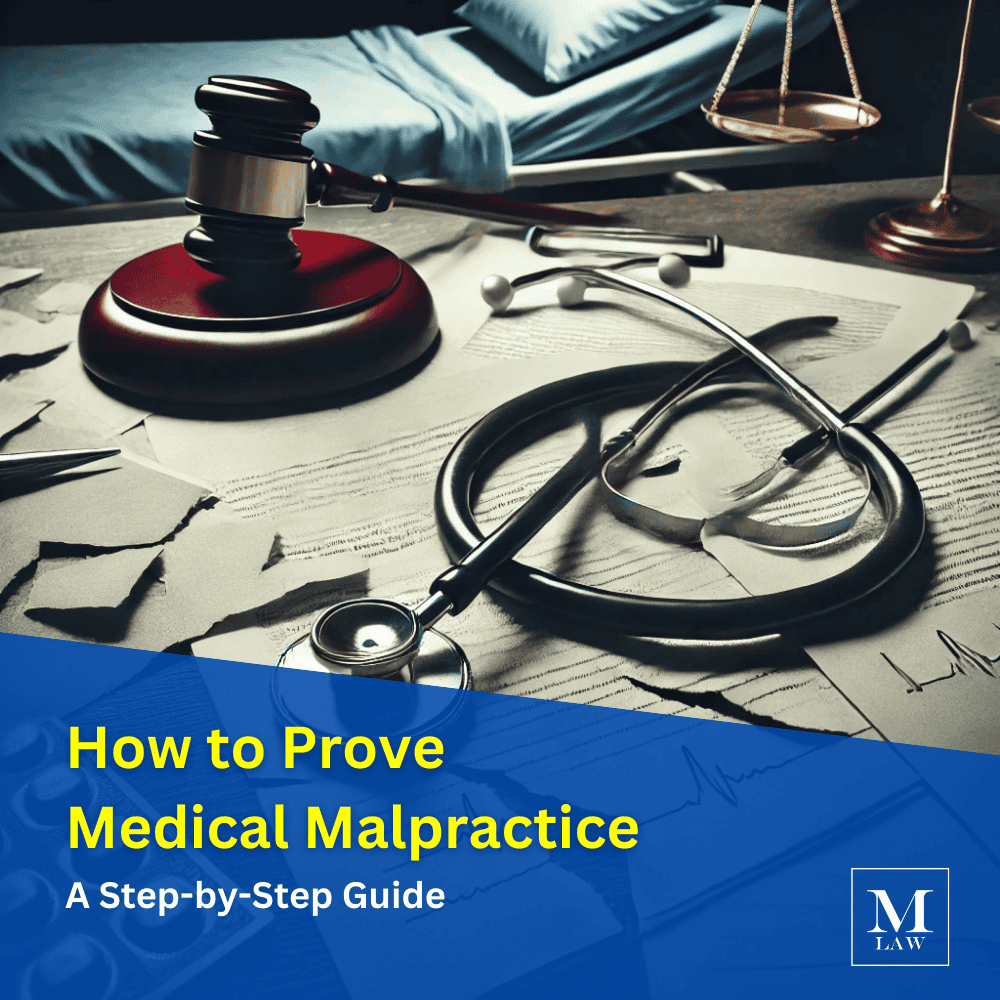Every Year, Thousands Suffer from Medical Negligence
But proving malpractice isn’t easy—hospitals fight back. Here’s what you need to know to build a winning case and secure the justice you deserve.
Step 1: Establish the Doctor-Patient Relationship
Before proving malpractice, you must confirm that a doctor-patient relationship existed. This means the doctor agreed to treat you, and you were under their care. Medical records, prescriptions, and hospital admission forms can serve as proof.
Step 2: Demonstrate a Violation of the Standard of Care
Healthcare professionals are expected to meet a standard of care, which refers to the level of competence and treatment that a similarly trained doctor would provide in the same situation. To prove malpractice, you need to show that the medical provider deviated from this standard.
Example of a Standard of Care Violation
Emily, a 36-year-old mother, went in for a routine appendix removal. (This is a fictional example for illustrative purposes.) When she woke up, she was horrified to learn that the surgeon had mistakenly removed part of her colon instead. Due to this error, Emily now faces lifelong digestive issues and requires ongoing medical treatment. This is a clear breach of the standard of care and a strong basis for a malpractice lawsuit.
🔹 Key Takeaway: If a doctor’s actions result in serious harm that could have been prevented, you may have a malpractice case.
Other examples include:
- Misdiagnosing a serious condition
- Administering incorrect medication or dosage
- Failing to order necessary tests
- Surgical errors
- Delayed treatment leading to harm
Step 3: Prove That Negligence Directly Caused Your Injury
It’s not enough to show that a doctor made a mistake—you must prove that their negligence directly caused harm. This is known as causation in legal terms.
For instance, if a surgeon operates on the wrong body part, that is a clear link between negligence and injury. However, if a patient has a pre-existing condition that worsened despite medical care, proving malpractice may be more difficult.
🔹 Key Takeaway: The injury must be a direct result of the doctor’s negligence, not an unrelated health issue.
Step 4: Document the Damages You Suffered
Once negligence is established, you must provide evidence of the damages you sustained. This includes:
- Medical bills – Costs of additional treatments, surgeries, or medications.
- Lost wages – If the injury prevented you from working.
- Pain and suffering – Physical and emotional distress caused by malpractice.
- Long-term care needs – Future medical expenses for rehabilitation or permanent disability.
Medical records, financial statements, expert evaluations, and personal journals documenting your suffering can strengthen your case.
🔹 Key Takeaway: The more documentation you have, the stronger your case will be.
Step 5: Obtain Expert Testimony
Most medical malpractice cases require expert testimony to prove negligence. A medical expert—typically a doctor in the same field—will analyze your records and confirm whether the healthcare provider failed to meet the standard of care.
Courts rely on these experts to provide an objective opinion on what should have been done differently.
Step 6: Work with an Experienced Medical Malpractice Attorney
Medical malpractice laws are highly complex, and hospitals and insurance companies have strong legal teams defending them. A skilled malpractice attorney can:
- Gather evidence and expert witnesses
- Navigate complex legal requirements
- Negotiate settlements or represent you in court
- Maximize compensation for your damages
🔹 Key Takeaway: Medical malpractice cases are tough to win alone—having a skilled attorney can make the difference between justice and no compensation.
🧐 FAQs on Medical Malpractice Lawsuits
❓ How long do I have to file a lawsuit?
- It depends on the statute of limitations in your state, which typically ranges from one to three years, but can vary based on specific circumstances. Check here.
❓ What if the hospital denies responsibility?
- A skilled attorney can subpoena records and call expert witnesses to prove negligence.
❓ How much is my case worth?
- Compensation varies depending on medical costs, lost wages, pain and suffering, and long-term effects.
Additional Resources
To strengthen your understanding of medical malpractice lawsuits, explore these resources:
- Common Types of Medical Malpractice
- Medical Malpractice Lawsuit Success Rates
- Statute of Limitations for Medical Malpractice
For more information on medical malpractice data, visit the New England Journal of Medicine and the American Medical Association.
Conclusion & Next Steps
Proving medical malpractice requires clear evidence, expert testimony, and a skilled legal team. To build a strong case, establish a doctor-patient relationship, demonstrate a violation of the standard of care, prove that negligence directly caused your injury, document all damages, and obtain expert testimony to support your claim. If you believe you have a case, act quickly—there are statutes of limitations that determine how long you have to file a lawsuit.
💡 Your time to file a lawsuit may be running out. Don’t wait—get a free case review today. Get legal help now.








